March 14, 2009
Special bonus: Hole in the Wall
(Improvised 3/13/2009, with Wiener and Stack). Used a MOTU Ultralite + ART dualpre (for 4 tracks, two on drums, one vocals, one guitar amp).
Such a fun session!
Comment...
| << | >> | open webamp |
Special bonus: Hole in the Wall
(Improvised 3/13/2009, with Wiener and Stack). Used a MOTU Ultralite + ART dualpre (for 4 tracks, two on drums, one vocals, one guitar amp).
Such a fun session!
Comment...
Debian, linux 2.6.18 on a 2.4ghz P4.. bleh. The remote power switching box gets lots of use (every few weeks) as a result.
---
Message from syslogd@test at Fri Feb 20 06:28:04 2009 ... test kernel: Oops: 0000 [#1]
Message from syslogd@test at Fri Feb 20 06:28:04 2009 ... test kernel: SMP
Message from syslogd@test at Fri Feb 20 06:28:04 2009 ... test kernel: CPU: 0
Message from syslogd@test at Fri Feb 20 06:28:04 2009 ... test kernel: EIP is at do_page_fault+0xa0/0x481
Message from syslogd@test at Fri Feb 20 06:28:04 2009 ... test kernel: eax: f695c030 ebx: 6b67cadd ecx: 0000007b edx: 00000000
Message from syslogd@test at Fri Feb 20 06:28:04 2009 ... test kernel: esi: a714c051 edi: 48f20084 ebp: 48f20000 esp: f695c00c
Message from syslogd@test at Fri Feb 20 06:28:04 2009 ... test kernel: =======================
Message from syslogd@test at Fri Feb 20 06:28:04 2009 ... test kernel: Oops: 0000 [#2]
Message from syslogd@test at Fri Feb 20 06:28:04 2009 ... test kernel: SMP
Message from syslogd@test at Fri Feb 20 06:28:04 2009 ... test kernel: CPU: 0
Message from syslogd@test at Fri Feb 20 06:28:04 2009 ... test kernel: EIP is at show_trace_log_lvl+0x3e/0x6a
Message from syslogd@test at Fri Feb 20 06:28:04 2009 ... test kernel: eax: 00001ffd ebx: 0000007b ecx: 00000046 edx: 00000000
Message from syslogd@test at Fri Feb 20 06:28:04 2009 ... test kernel: esi: c0291c24 edi: 00000000 ebp: c0291d8d esp: f695bf24
Message from syslogd@test at Fri Feb 20 06:28:04 2009 ... test kernel: ds: 007b es: 007b ss: 0068
Message from syslogd@test at Fri Feb 20 06:28:04 2009 ... test kernel: Process ninjamsrv (pid: 2490, ti=f695a000 task=dfa82000 task.ti=f695a000)
Message from syslogd@test at Fri Feb 20 06:28:04 2009 ... test kernel: Stack: f695c06f 00000018 00000000 c0291d8d c0103c21 c0291d8d c0291c52 c0291d8d
Message from syslogd@test at Fri Feb 20 06:28:04 2009 ... test kernel: f695bfd8 f695c00c 00000002 00010206 f695bfd8 f695c00c c0103d51 c0291d8d
Message from syslogd@test at Fri Feb 20 06:28:04 2009 ... test kernel: c0291d81 00000001 00000068 c0115344 00000000 f695bfd8 00000206 c0103f44
Message from syslogd@test at Fri Feb 20 06:28:04 2009 ... test kernel: Call Trace:
Message from syslogd@test at Fri Feb 20 06:28:04 2009 ... test kernel: Code: 1c 56 68 5d 1e 29 c0 e8 9a 9d 01 00 89 f2 b8 df bc 29 c0 e8 06 25 03 00 58 5a 83 c3 04 39 fb 76 2a 8d 87 fd 1f 00 00 39 c3 73 20 <8b> 33 89 f0 e8 cc 83 02 00 85 c0 74 e2 eb c7 55 89 cb 68 24 1c
Message from syslogd@test at Fri Feb 20 06:28:04 2009 ...
test kernel: EIP: [ Message from syslogd@test at Fri Feb 20 06:28:04 2009 ...
test kernel: ds: 007b es: 007b ss: 0068
Message from syslogd@test at Fri Feb 20 06:28:04 2009 ...
test kernel: Process ninjamsrv (pid: 2490, ti=f695a000 task=dfa82000 task.ti=f695a000)
Message from syslogd@test at Fri Feb 20 06:28:04 2009 ...
test kernel: Stack: 00000000 f695c030 e671cf24 31635f75 6b67cadd a714c051 c01152a4 48f20000
Message from syslogd@test at Fri Feb 20 06:28:04 2009 ...
test kernel: c01037f9 6b67cadd 0000007b 00000000 a714c051 48f20084 48f20000 f695c088
Message from syslogd@test at Fri Feb 20 06:28:04 2009 ...
test kernel: 2098007b dcb8007b ffffffff c0115344 00000060 00010206 00000000 f695c088
Message from syslogd@test at Fri Feb 20 06:28:04 2009 ...
test kernel: Call Trace:
4 Comments
Have a few ideas for things to try, but I won't post them here just yet.
Got a bit of projector action with AVS + IRC on it, the music room cleaned up, and lots of fancy abuse of technology happening.
Time to write some more songs though perhaps...
Recordings:
chr - 1 -- [29:20]
chr - 2 -- [21:28]
1 Comment
With that note, here's a song:
Blammo!
1 Comment
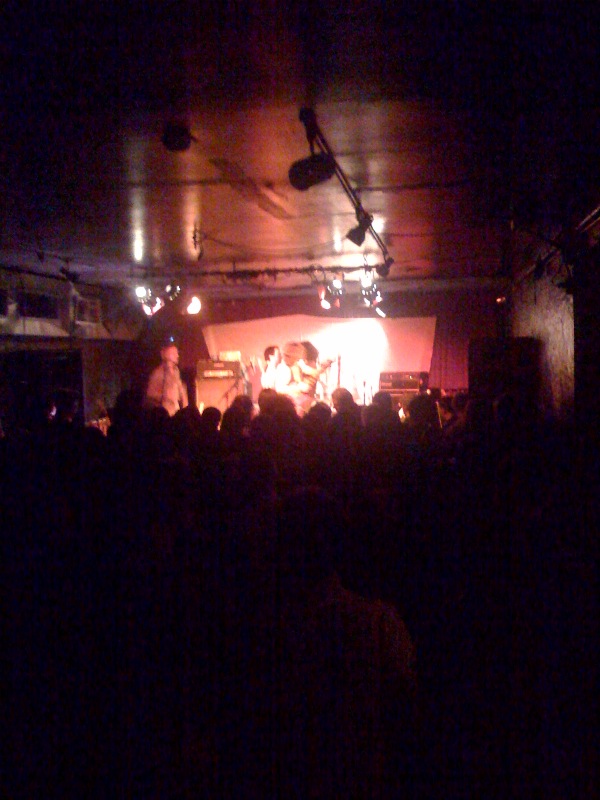
This show was so awesome.. Back in November I think.. Mmmm.
1 Comment
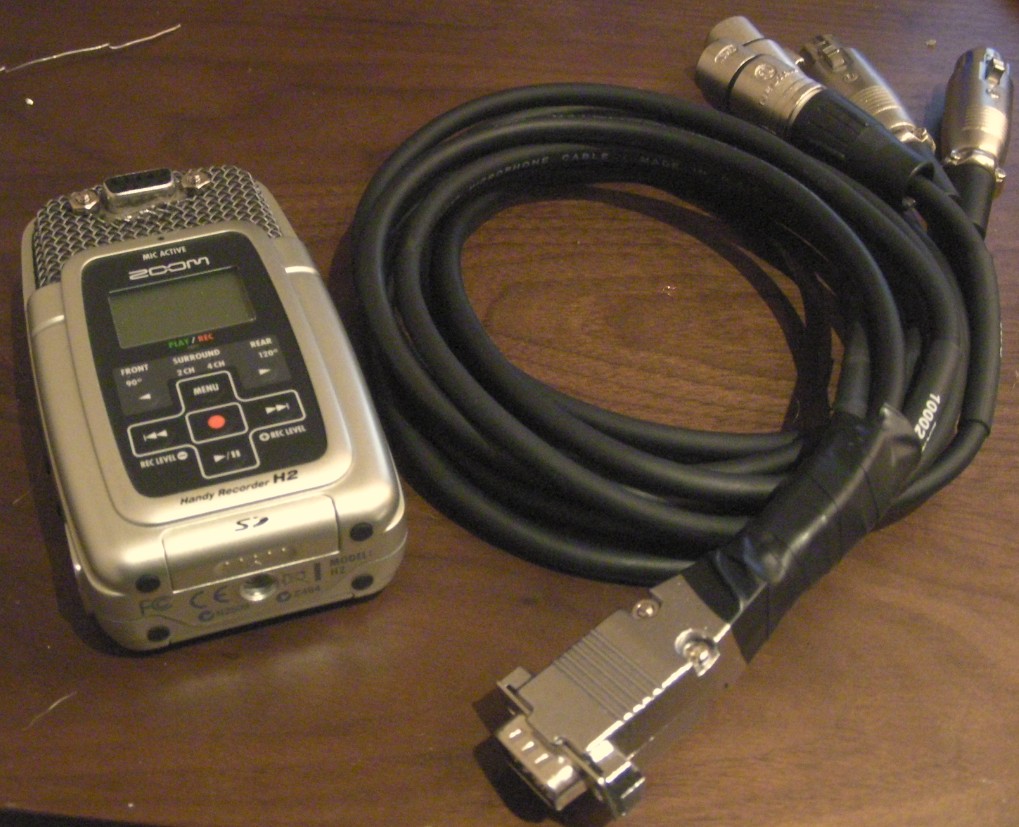
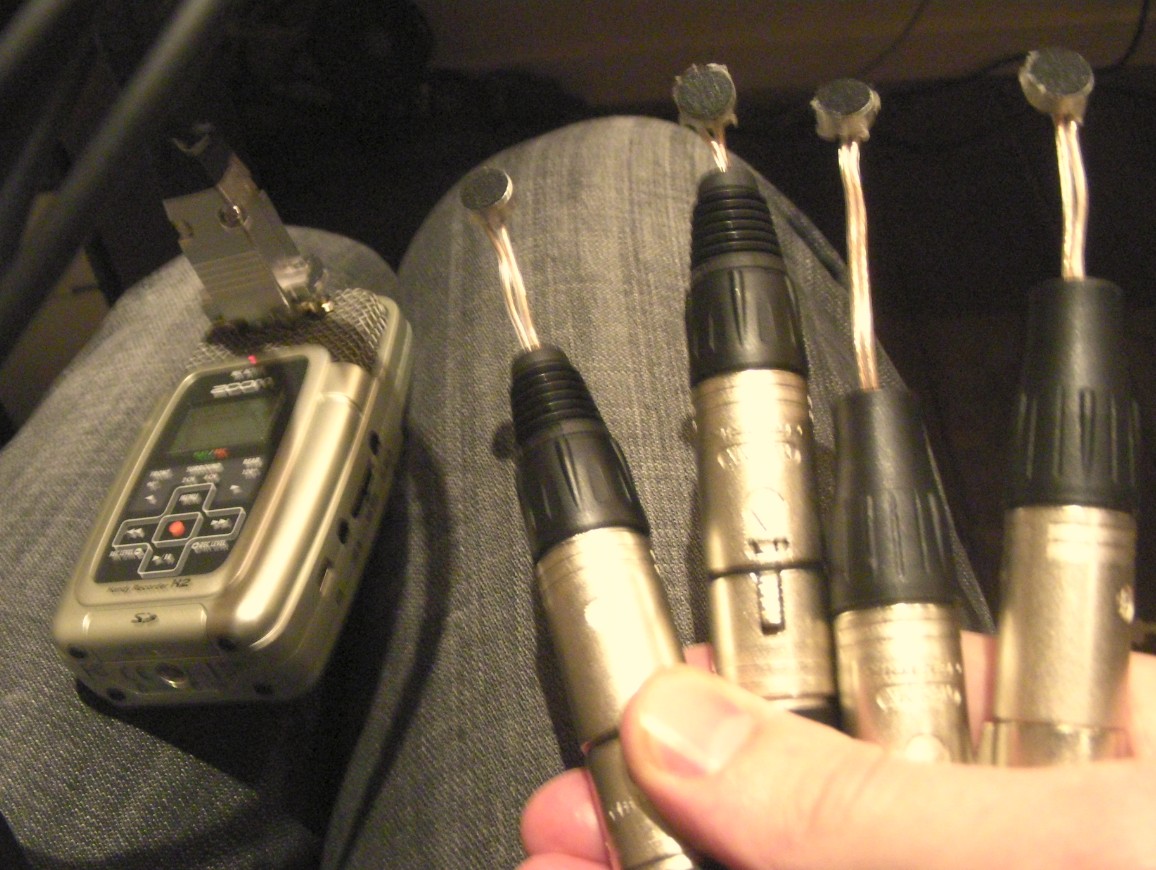
Note that the stock mics should not work on anything other than a Zoom H2, since they need approx 1.9v apparently. 48v phantom power might work, but I'm not
going to risk frying them...
Here it is in a picture with the original mics connected to a DB9 plug via speaker wire (it's proof of concept, hey, I know this is crappy).
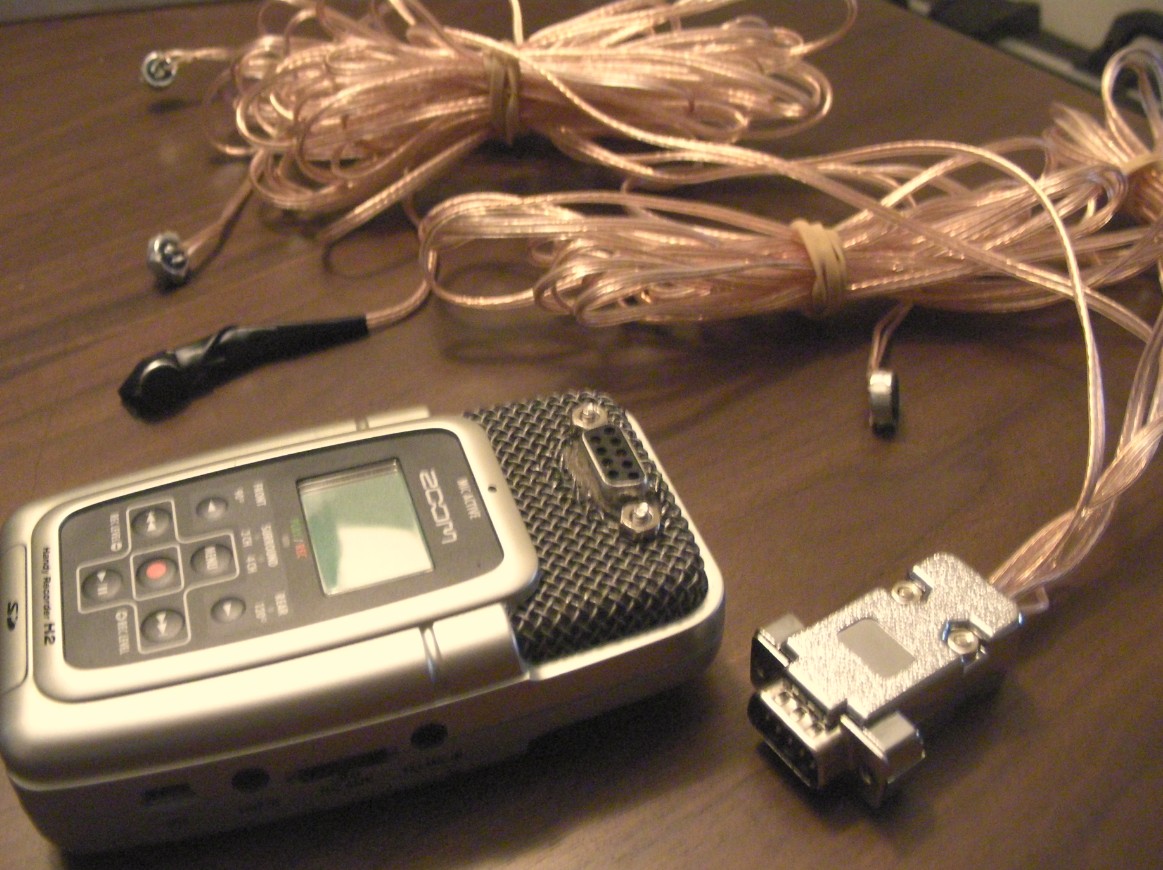
I'm going to make a DB9 plug to 4x XLR breakout cable today. There is no phantom power (just a piddly 1.9v or so), so it'll have to be used with dynamic mics, but the preamps seem to work fine with the SM57 I have here. Also need to figure out where to connect the XLR's pin 1 (well, it'll go to the DB9 casing, but then on the inside the H2 will need to find a good place to ground that).
If only the (otherwise awesome) ASIO driver supported 4ch input!
1 Comment
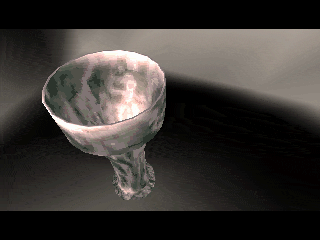
It was written in C, it tried to be very portable (reading through it now, I'd say almost to a fault -- kinda annoying ;). There were some nifty things about it:
The code itself wasn't too bad, some stuff that I had spent ages tweaking and getting to run smoothly would surely be reusable.
So in about 8 hours of work I transformed it into Plush2, which is similar to the above, except simplified in C++, renders to 32 bit per pixel output, integrates with our LICE compositing engine, and supports the following new features:

Yes yes I know 3D stuff has all been done a ton, just thought it was interesting bringing things back from the dead to see what would be reusable. Now I'm going to go hug my 2.4ghz multicore processor.
This will be a part of the next WDL release, in case anybody cares, ha ha. It does compile down to pretty small (though not small enough to go making a 4k demo with it)
The error is pretty low for the first few cycles, though after a bit it does drift in relation to the correct wave. I'm not going to spend too much more time on this, but if anybody wants to see if there's some way to correct it, go for it (it may just be rounding error, though, of course).
Here is the code:
// iterate to next sample
double newpos = pos*mul1 + vel*mul2;
vel -= (pos+newpos);
pos = newpos;